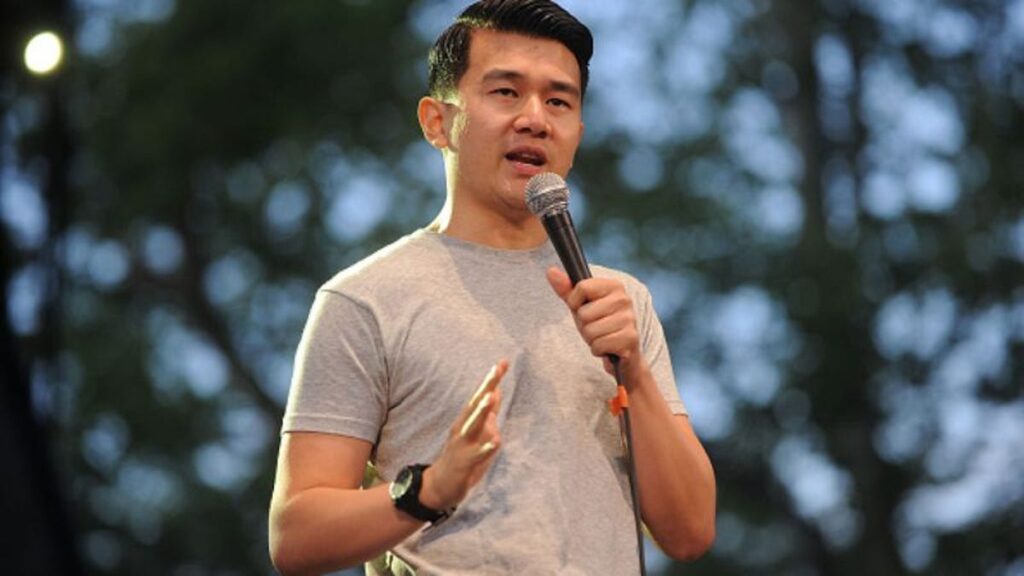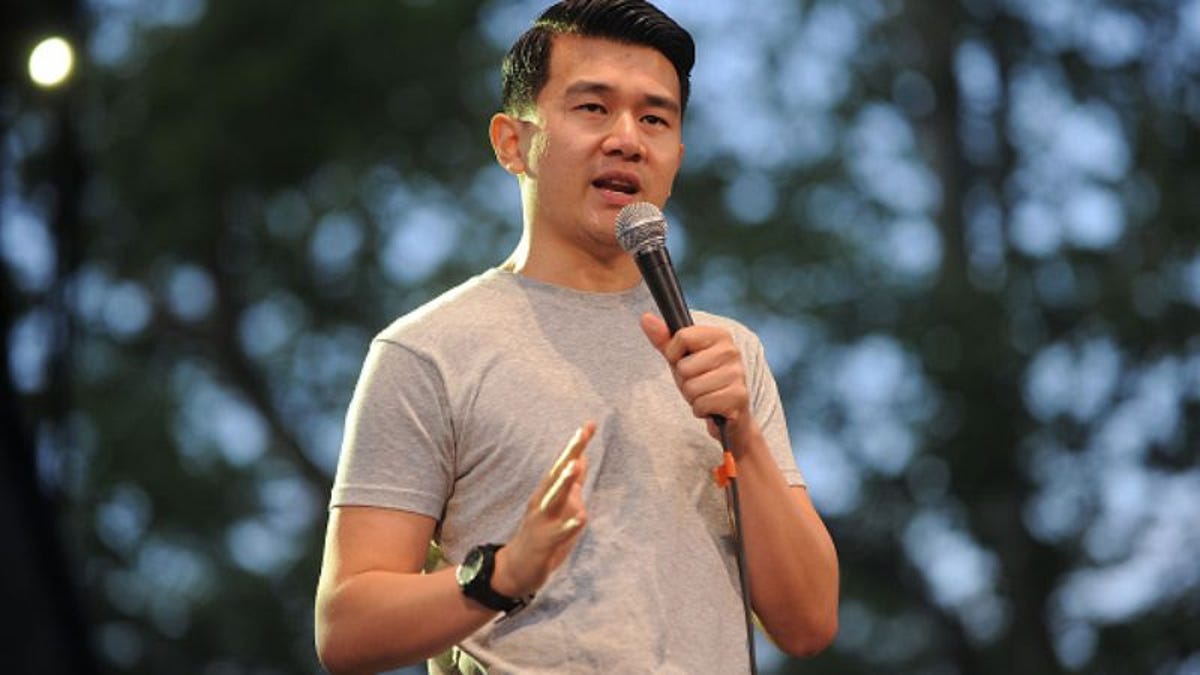
Decoding Ronny Chieng: When Comedians Apply Their Own Moral Values
Ronny Chieng, the Malaysian-born Australian comedian, is known for his sharp wit, incisive social commentary, and unapologetic delivery. But what happens when a comedian like Chieng, whose material often pushes boundaries and challenges societal norms, applies their own moral values to their work? This question delves into the complex intersection of comedy, ethics, and personal beliefs, exploring how comedians navigate the tightrope between humor and responsibility. This article offers a comprehensive exploration of this topic, examining the nuances of moral frameworks in comedy, the impact on audiences, and the broader implications for freedom of expression.
The Moral Compass of Comedy: Navigating Ethical Boundaries
Comedy, at its core, is about pushing boundaries. It often relies on exaggeration, satire, and even taboo subjects to elicit laughter and provoke thought. However, this freedom is not without its limits. The application of personal moral values becomes crucial in determining where those limits lie. For a comedian like Ronny Chieng, whose humor frequently tackles sensitive issues like race, politics, and cultural differences, this navigation is particularly delicate.
A comedian’s moral compass is shaped by a variety of factors, including their upbringing, personal experiences, cultural background, and philosophical beliefs. These values influence the topics they choose to address, the perspectives they adopt, and the language they employ. While some comedians may prioritize shock value and controversy, others may strive to use humor as a tool for social change, holding themselves accountable to higher ethical standards.
Ronny Chieng’s Comedic Style: A Blend of Wit and Social Commentary
Ronny Chieng’s comedic style is characterized by his fast-paced delivery, intellectual humor, and willingness to tackle complex social issues. He often draws on his own experiences as an immigrant and a person of color to offer insightful commentary on race relations, cultural differences, and political hypocrisy. His appearances on The Daily Show and his stand-up specials demonstrate a commitment to addressing relevant and often controversial topics.
Chieng’s humor is not always comfortable. He challenges audiences to confront their own biases and assumptions, often using satire and irony to expose uncomfortable truths. This approach can be polarizing, as some viewers may find his jokes offensive or insensitive, while others appreciate his willingness to speak truth to power. The key to understanding Chieng’s comedy lies in recognizing the underlying moral framework that guides his work.
The Impact of Moral Values on Comedic Content
The moral values of a comedian directly influence the content they create. This influence can manifest in several ways:
- Topic Selection: A comedian’s values determine which topics they are willing to address. Some may avoid sensitive subjects like religion or tragedy, while others may embrace them as opportunities for commentary.
- Perspective: A comedian’s values shape the perspective they adopt when addressing a particular topic. They may choose to defend the marginalized, challenge the powerful, or simply offer a unique and thought-provoking viewpoint.
- Language: A comedian’s values influence the language they use in their jokes. Some may prioritize vulgarity and shock value, while others may strive for wit and subtlety.
- Target of Humor: A comedian’s values determine who or what they are willing to make fun of. Some may avoid punching down, focusing instead on those in positions of power, while others may be more indiscriminate in their targets.
For example, a comedian who values social justice may use their platform to raise awareness about inequality and advocate for change. They may target corporations, politicians, or other institutions that perpetuate injustice. Conversely, a comedian who values individual liberty may use their platform to defend free speech and challenge censorship. They may target political correctness, cancel culture, or other perceived threats to freedom.
The Audience’s Role: Interpreting and Reacting to Comedic Content
The audience plays a crucial role in interpreting and reacting to comedic content. Each individual brings their own set of moral values, cultural background, and personal experiences to the table, which influences how they perceive and understand a joke. What one person finds hilarious, another may find offensive or insensitive.
The relationship between a comedian and their audience is a dynamic one. Comedians often test the waters with new material, gauging audience reactions to determine what works and what doesn’t. They may adjust their delivery, refine their jokes, or even abandon certain topics altogether based on audience feedback. This process of trial and error is essential to the evolution of comedy.
Case Study: Examining Specific Examples of Ronny Chieng’s Comedy
To illustrate how Ronny Chieng applies his own moral values to his comedy, let’s examine some specific examples of his work. In his stand-up routines, Chieng often tackles issues of race and identity, drawing on his own experiences as a Malaysian-born Australian living in America. He uses humor to expose the absurdity of racial stereotypes and challenge the assumptions that people make about him based on his ethnicity.
For instance, in one routine, Chieng jokes about the challenges of being mistaken for other Asian ethnicities. He satirizes the ignorance and laziness of people who can’t distinguish between different Asian cultures, highlighting the subtle forms of racism that he encounters on a daily basis. By making light of these experiences, Chieng not only elicits laughter but also raises awareness about the issue of racial microaggressions.
Another example of Chieng’s moral compass at work can be seen in his segments on The Daily Show. As a correspondent, Chieng has covered a wide range of political and social issues, often taking a critical stance against injustice and inequality. He has used his platform to advocate for gun control, criticize the Trump administration, and expose the hypocrisy of conservative politicians. His work on The Daily Show demonstrates a clear commitment to using comedy as a tool for social change.
The Responsibility of the Comedian: Balancing Humor and Ethics
Comedians have a responsibility to consider the potential impact of their jokes on their audience. While humor can be a powerful tool for social commentary and change, it can also be used to perpetuate harmful stereotypes, incite violence, or inflict emotional pain. The line between harmless humor and harmful rhetoric can be blurry, and comedians must be mindful of the potential consequences of their words.
This is not to say that comedians should be censored or restricted in any way. Freedom of expression is a fundamental right, and comedy plays an important role in challenging societal norms and holding power accountable. However, with freedom comes responsibility. Comedians must be willing to engage in self-reflection, listen to criticism, and learn from their mistakes.
Leading experts in comedic ethics suggest that a comedian’s primary responsibility is to be thoughtful and intentional in their humor. They should consider the potential impact of their jokes on vulnerable groups and avoid perpetuating harmful stereotypes or promoting hate speech. They should also be willing to apologize if they make a mistake and take steps to prevent similar incidents from happening in the future.
The Future of Comedy: Evolving Moral Standards and Shifting Social Norms
The landscape of comedy is constantly evolving, influenced by shifting social norms, changing moral standards, and the rise of new technologies. What was considered acceptable humor yesterday may be considered offensive or outdated today. Comedians must adapt to these changes in order to remain relevant and engaging.
One of the biggest challenges facing comedians today is the rise of social media and the increasing scrutiny that comes with it. In the age of Twitter and Instagram, jokes can be easily shared, dissected, and criticized by millions of people around the world. This level of scrutiny can be daunting for comedians, who may feel pressured to self-censor or avoid controversial topics altogether.
Despite these challenges, the future of comedy remains bright. As long as there are people willing to challenge the status quo, provoke thought, and make us laugh, comedy will continue to thrive. The key is for comedians to embrace their responsibility as artists and use their platforms to create humor that is both funny and meaningful.
Navigating the Nuances of Comedic Moral Values
In conclusion, the application of personal moral values is an essential aspect of comedy, particularly for comedians like Ronny Chieng who tackle sensitive social and political issues. By understanding the complexities of this intersection, audiences can better appreciate the nuances of comedic expression and engage in more informed discussions about the role of humor in society. Chieng’s work highlights the importance of considering the ethical dimensions of comedy and the responsibility that comes with using humor to challenge norms and provoke thought.
Share your experiences with Ronny Chieng’s comedy and your thoughts on the role of moral values in humor in the comments below.

